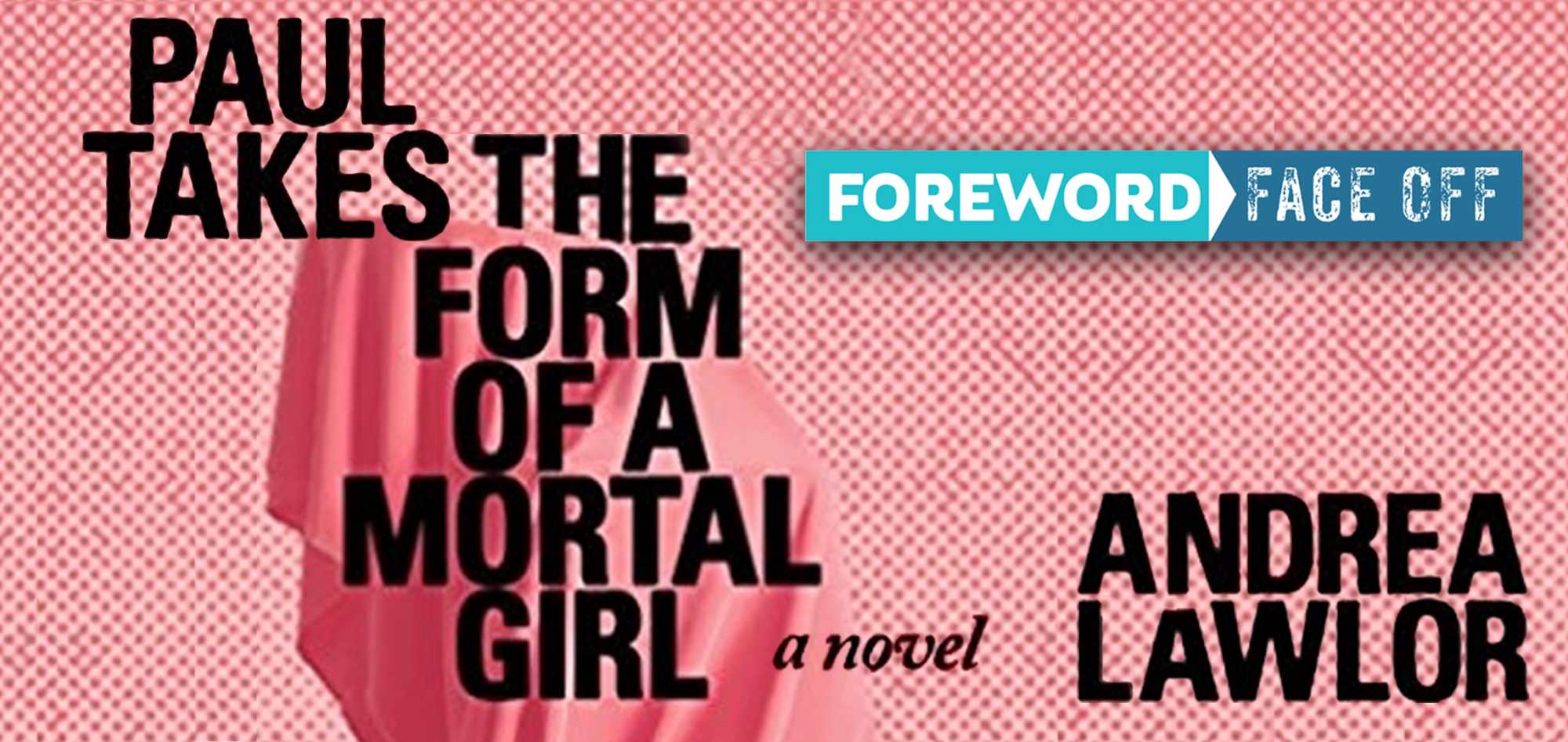Foreword's Monica Carter Interviews Andrea Lawlor, Author of Paul Takes the Form of a Mortal Girl

Meet Paul, a shape-shifting, gender-nonconforming college student whose motivating desire is to be as hot as possible, no matter what sex he chooses to be.
How’s that for a book teaser?—It comes directly from Monica Carter’s wonderful review of Paul Takes the Form of a Mortal Girl in the last issue of Foreword Reviews. We were so intrigued by the book and author Andrea Lawlor that we put Monica on assignment to catch up with Andrea for an interview—another installment of Foreword Face Off.
What I really admired about this novel was your ability to so subtly incorporate the shape-shifting aspect of Paul. What inspired you to write the character of Paul this way?
Like many queer and trans people, I’ve been attracted to stories about shapeshifters my whole life, which led me as a young person to read Octavia Butler’s Wild Seed and Virginia Woolf’s Orlando. Both Butler and Woolf are interested in pleasure—bodily and narrative. Butler kept me awake way past my bedtime with her attention not just to action but to, for instance, Anyanwu’s pleasure: her pleasure in sex, in becoming a non-human animal, in having a body/bodies. From Woolf I learned about authorial entitlement—it’s so because I say it’s so.
Paul Takes the Form of a Mortal Girl is genre-defying, but it also explores gender fluidity in a very creative way. Was this because you wanted to approach gender identity and sexual orientation through the lens of desire?
Oh, that’s interesting! I wasn’t thinking theoretically at all while I was writing; I was following Paul through a particularly rich, confusing, vulnerable time of his life. If anything, I was trying to make sense of certain (mostly sexual) experiences I’d had that mystified me. Now, I can say something like, “I wanted to explore, through art, what it felt like to navigate different spaces and demands around gender” and that’s true, but entirely retrospective.
How did you come to set it in the mid-1990s with such pitch-perfect, exhaustive musical references?
Like Paul, I came of age in the early 90s, and was paying a lot of attention to music at that time, but—and maybe this is more evidence that I’m a 90s person at heart—I really struggled with the feeling that my musical knowledge wasn’t exhaustive enough. When I studied with Samuel Delany, he said something offhandedly which was nevertheless revelatory to me: “You can’t write a character who’s smarter than you.” I wanted Paul to be smarter about music than I was, but had to settle for what I knew, ultimately.
Do you feel that queer culture is missing works that address queer desire in this way?
Some of my early literary heroes like Dorothy Allison, Samuel R. Delany, Eileen Myles, John Rechy, and David Wojnarowicz investigated all kinds of queer desire—and queer sex—in fiction. Until I entered the MFA world, I thought everybody figured out their lives through sex; when I first brought in sections of my manuscript to workshops, some of my younger (straight) classmates suggested, kindly, that there was “quite a lot” of sex in the book. My professors, meanwhile, didn’t bat an eye. So that was information. I then very diligently tried to tell Paul’s story with fewer sex scenes (and ultimately did cut five or six scenes), but of course that made no sense because his story is about sex, and about sexual desire.
And, as Latour said so well many years ago, “people are still having sex,” (https://www.youtube.com/ watch?v=0ImRyPymRAM), and young queer writers like Carmen Maria Machado are still writing about sex. Machado said this great thing in a recent Paris Review interview (https://www.theparisreview. org/blog/2017/10/03/pleasure- principles-interview-carmen- maria-machado/): “The story is not serving the sex, the sex is serving the story” and her own stories are shot through with queer desire and sex, as are recent works like Susan Choi’s My Education or Garth Greenwell’s What Belongs to You or Sarah McCarry’s About a Girl, or Bryn Kelly’s “Other Balms, Other Gileads” (http://wewhofeeldifferently. info/journal.php#Bryn). I mean, I always want more, so if I say yes, maybe people will write more?
Matt Sutherland
